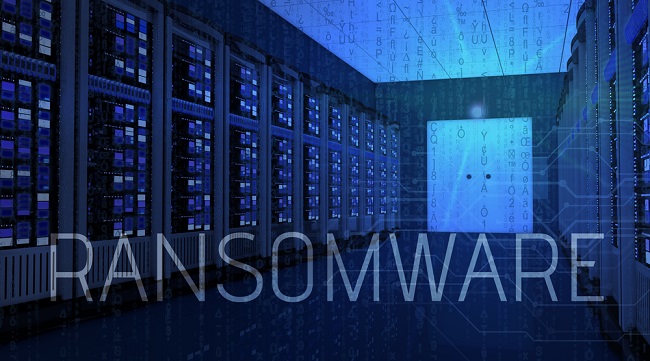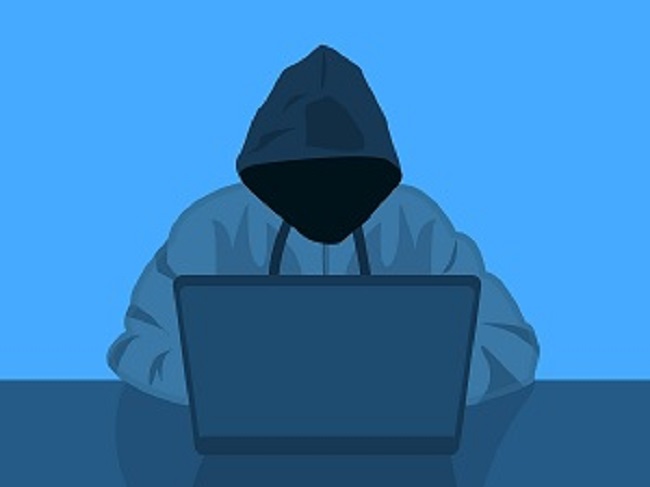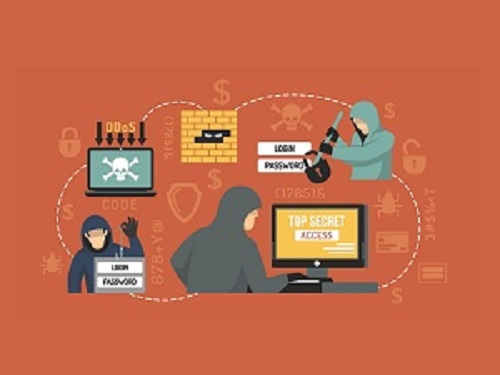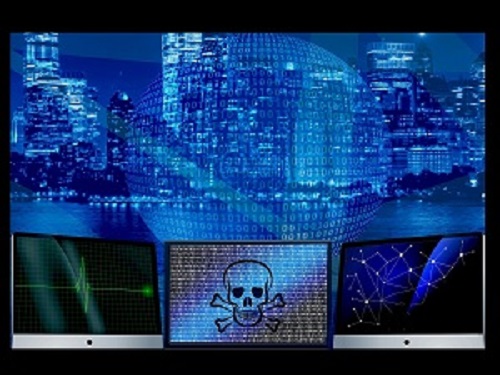
What if you didn’t have to worry about ransomware or any other viruses? Unfortunately, cybercrime has become a major problem for the Chief Technology Officer (CTO) who is tasked with protecting the company’s computer systems, as well as the CEO who has to deal with the consequences of an attack. Large corporations such as Merck, Mondelez, Sony and DLA Piper have been infected by malware. Hospitals and organizations around the world have not been spared. It has become a global problem.
There are a number of virus protection programs that attempt to block malware from entering the system, but none of the solutions work all the time. A good solution is to be more careful with email, but it is hard to control everyone in the organization. An extreme solution is to take the computer off the Internet, but this prevents access to people who need the data.
What if we could prevent any virus from changing the data in our hard drives? Well, now there is a new solution that provides the malware protection we all need. HDWrite1X technology was initially developed for the Department of Justice (DOJ) to ensure the integrity of digital evidence. An early application was to protect video evidence recorded from IP camera systems.
To understand the new technology, let’s go back to the early 1980s when Sony introduced the Write Once Read Many (WORM) discs. The WORM disc was the precursor to CD-discs. This optical technology provided archival media but also had the characteristic of only writing once. It meant that any data you placed on the discs could not be changed. Now there is a new way to do the same thing using a standard hard drive.
The virus protected storage solution uses modified hard drives instead of WORM optical discs. The secret is to add special hardware controls that emulate write-once capability. Unlike optical discs, this emulation technology allows you to turn the write-once function on as required. The write-once technology prevents data from being changed, yet the storage system looks exactly like a standard hard drive system to all your application programs and operating system.
HDWrite1X Protection
There are two versions of HDWrite1X. The first type, called HDWrite1X-OS protects the operating system by preventing any changes to the master boot records and partition tables. The second version, called HDWrite1X-HD protects all your static data files. In general, the system can protect data temporally, provide incremental permanent protection, or lockdown a complete disk. It can even provide instant lock-down of data when a cyber-attack is detected.
This type of system provides a much more secure barrier to malware attack than anti-virus tools. The HDWrite1X solution has been tested by Defense Information System Agency (DISA), Department of Justice (DOJ), disk manufacturers, NIST, Raytheon, and others. Nobody has been able to penetrate it.
How to Protect Your Computer
There are various types of malware. Malware includes viruses, worms, Trojans, bots, and ransomware. Here is how to protect your computer from these threats.
Ransomware Protection
This is a crypto virology type threat that prevents user access to files. Used to extort money. By using HDWrite1X-OS to protect the operating system and HDWrite1X-HD to protect the data, files such as .doc, .pdf, .xls, etc. cannot be modified.
Worms and Virus
The worm malware replicates itself so that it can spread to other computers. Virus malware tends to be more complex than the worm. In both situations, the code is replicated and can infect both the operating system as well as other applications. It usually hides within other programs.
By using HDWrite1X-OS to protect the operating system and HDWrite1X-HD to prevent changes to data files, the attack is blocked.
Trojans and Backdoors
A Trojan uses a misleading method to gain access and load malicious software. Even if malware infects your computer system, all the HDWrite1X protected files and disks cannot be modified. Any program that tries to modify data is aborted by the protection system. The backdoor malware bypasses normal authentication and can get into your computer system, but HDWrite1X protection is at the hardware level. This means that you can even remove the hard disk and try to modify data using special equipment. The protections built within the HDWrite1X drive protects the data.
Strategy for Malware Protection
Total protection of the computer system is more than just write-once protected disks. Normal computer operation requires the rewriting of data, so we cannot prevent changes all the time. Database programs constantly change their information as new data is added or old data is modified. Even the email data that is resident on your server changes data just like the database programs. How do you handle this?
Backup to HDWrite1X protected drives
By consistently backing up your data to a drive that can’t be modified by malware, you always have a way to recover if you are hacked. What if you did not do anything else? What if you did not segment your data or prevent people from clicking on contaminated emails? The backups protect your data. You can go back in time to previous generations of backups and find uncontaminated versions that allow you to recover quickly from a malware attack.
Controlled Protection
You can protect your data at various security levels, either temporarily or permanently. You can select protection of a complete disk, or incrementally protect files as they are changing, or you can protect a disk or files temporally.
Complete disk protection is the simplest operating mode. In this mode, you write your data to the HDWrite1X protected disk. When operations are complete, the disk is finalized (write-protected). This is very similar to the way a DVD-R works.
Incremental disk protection protects your data as you process information. In this case, you write data, have it protected (Enforce), then at a later time write more data, have that protected, and continue until you are done. Once the data is enforced it can’t be modified. At some point, the disk either fills up, or you choose to protect the entire disk by finalizing the disk. The disk is now permanently protected from modification or deletion..
Temporary disk protection allows an area of the disk to be temporarily protected against data changes. This is a lock function that sets the files to read-only. It can be unlocked and data can then be changed.
HDWrite1X-OS is configured so that the sensitive operating system boot and partition information is permanently protected. This allows the OS to operate normally but prevents a hacker from damaging these sensitive areas of the disk. Your systems will remain bootable even after a cyber-attack.
Summary of Malware Protection
Malware is one of the challenges that keep the CTO and CEO from sleeping at night. Many organizations think their data is secure, only to discover a major breach that allows their valuable information to be stolen or lost. The latest write-once technology protects the operating system and the data from being modified thus protecting the computer system from malware attacks. You can also seek out companies that offer managed IT services.
Call SpartanTec, Inc. now and learn how our managed IT services can help protect your business against ransomware, malware, and other types of online threats.
SpartanTec, Inc.
Myrtle Beach, SC 29577
(843) 420-9760
https://www.spartantec.com/
Serving: Myrtle Beach, North Myrtle Beach, Columbia, Wilmington, Fayetteville, Florence










